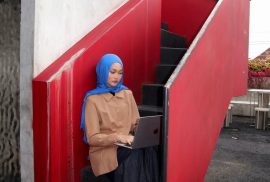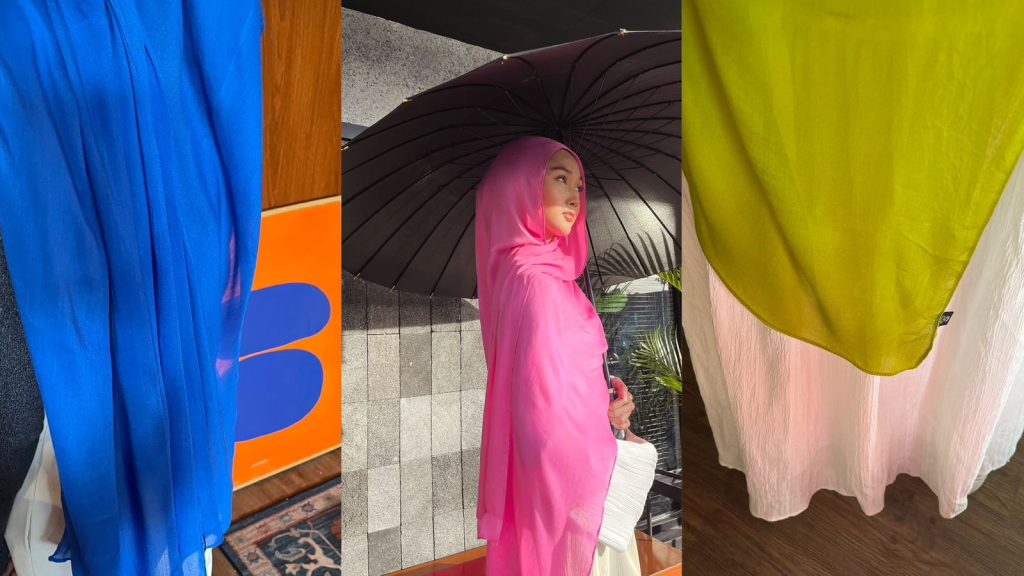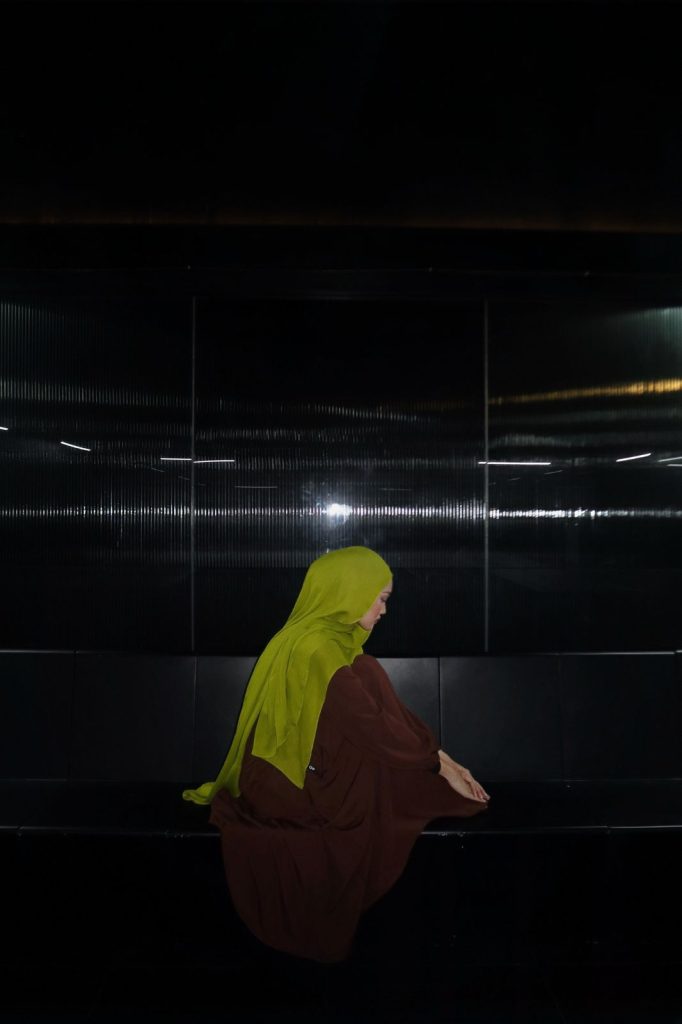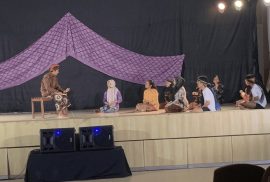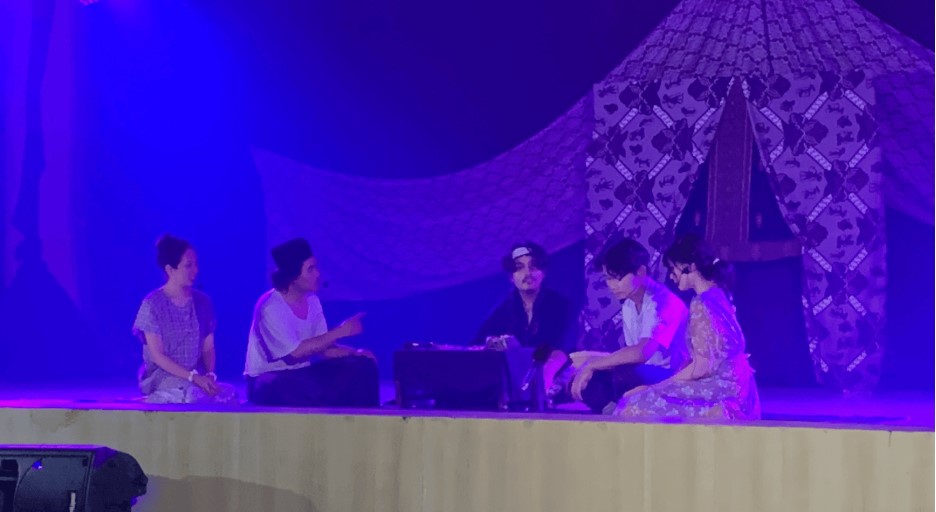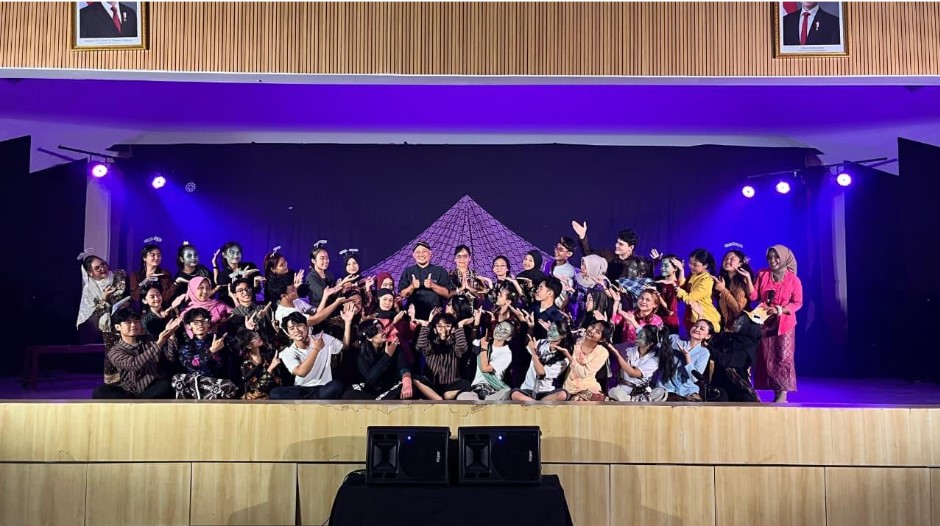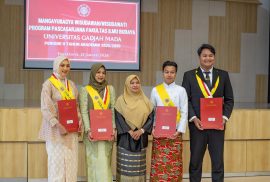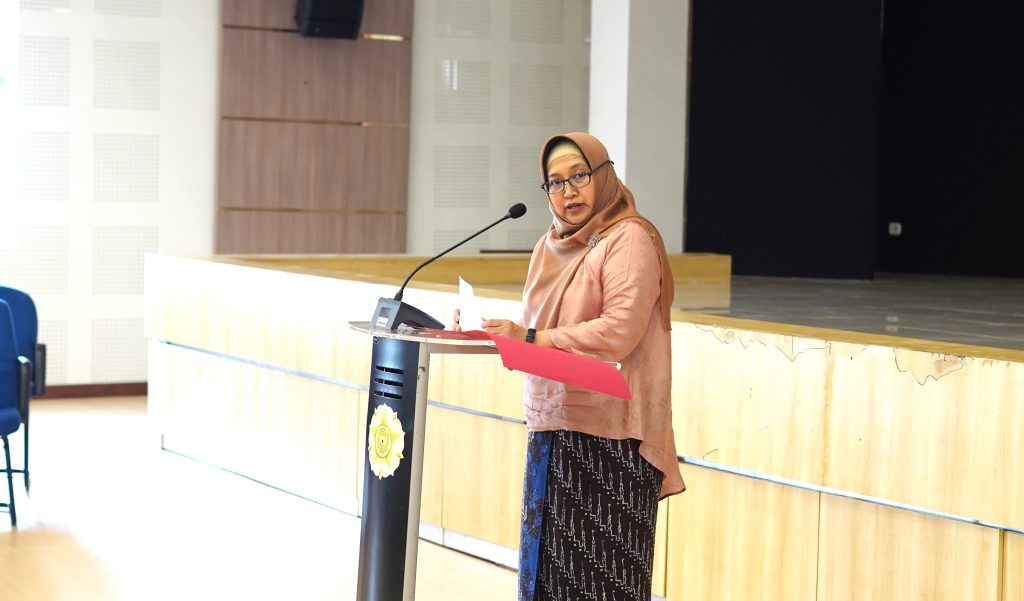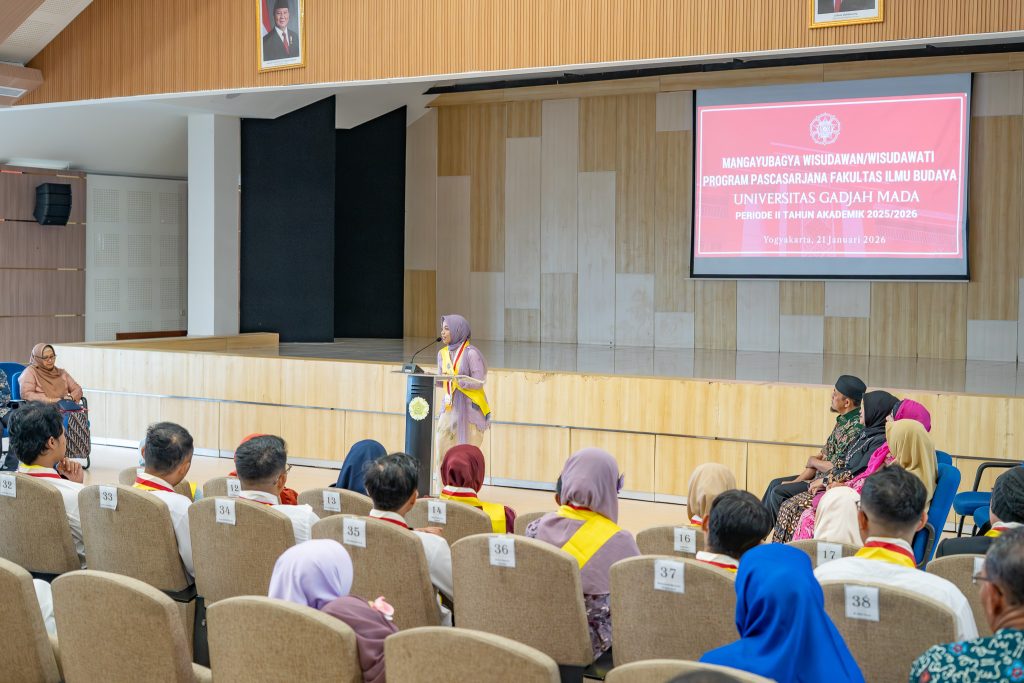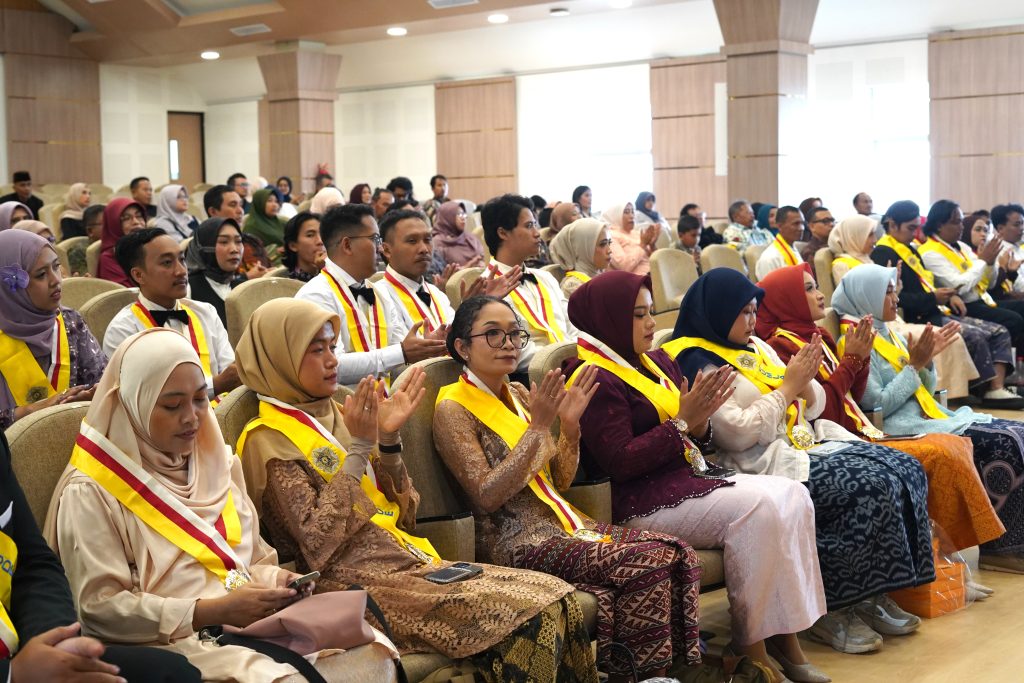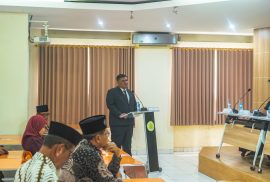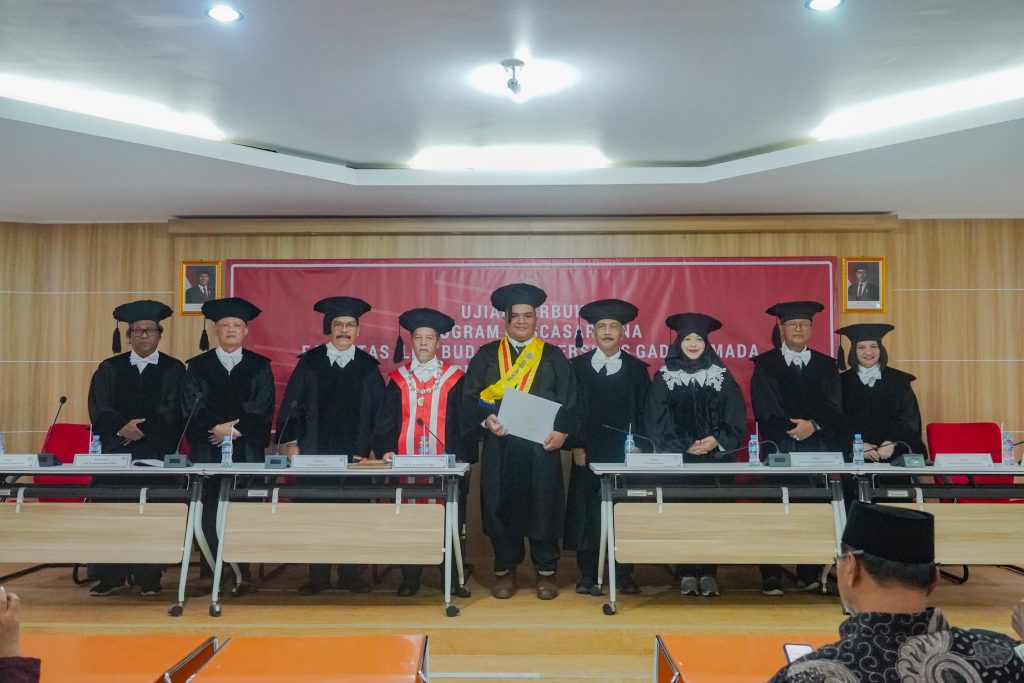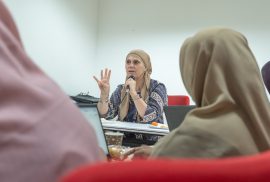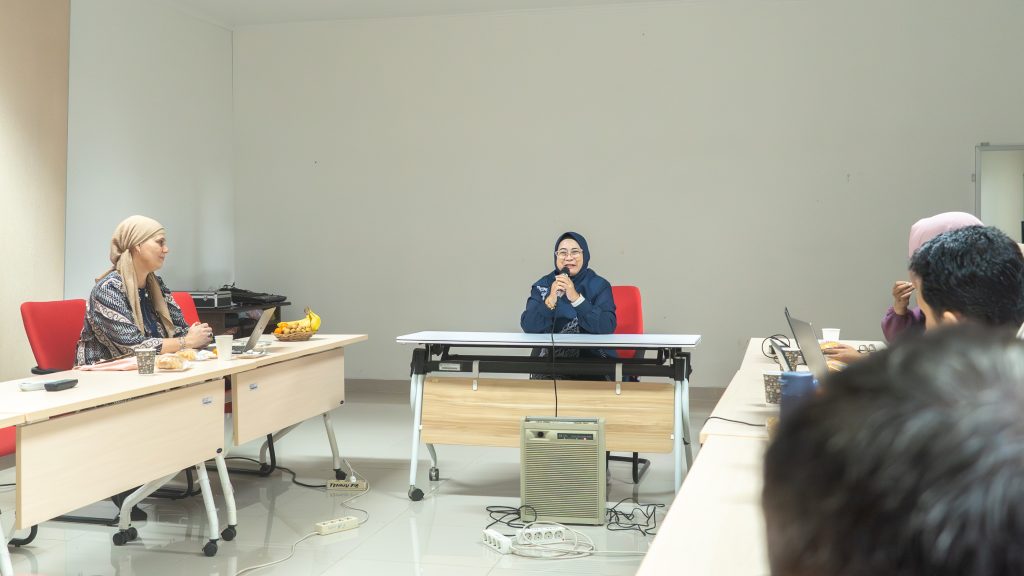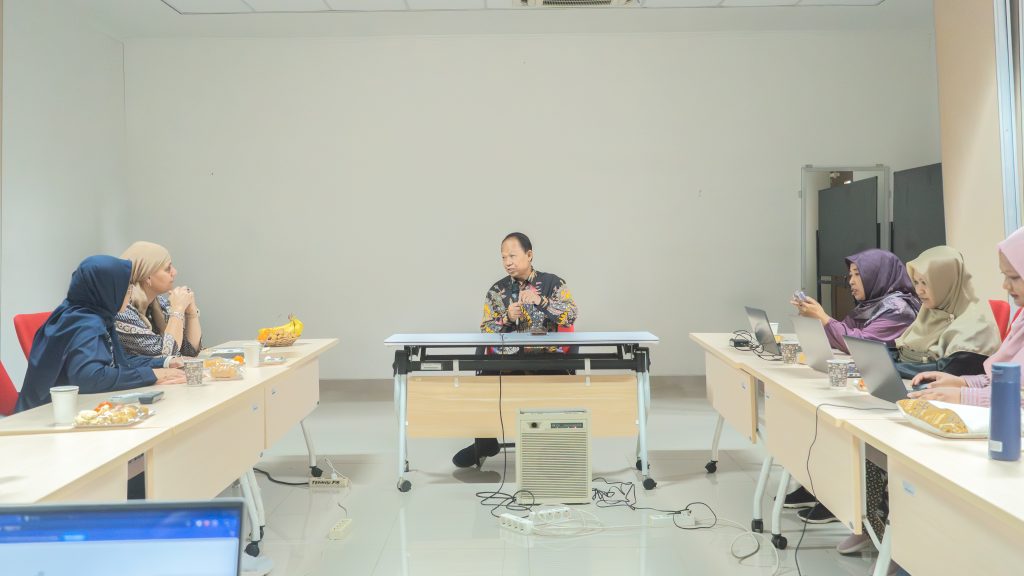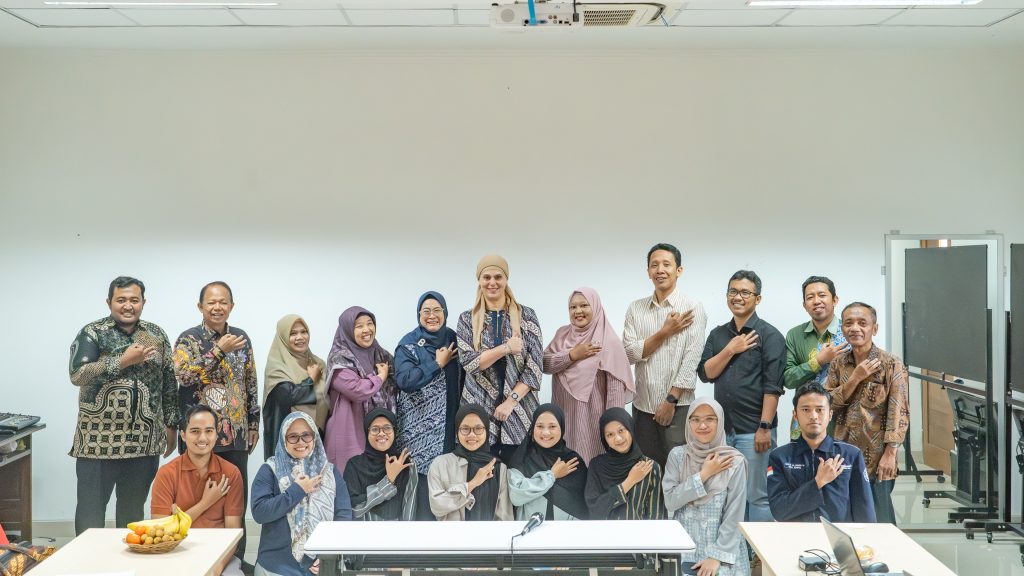Yogyakarta, January 26, 2025 — Shela Azzahra, a 2023 student of the English Literature Study Program, demonstrates that the creativity of students at the Faculty of Cultural Sciences (FIB), Universitas Gadjah Mada, does not grow solely within classroom walls but can also transform into entrepreneurial innovation. Through her hijab brand, laSheild, Shela presents a local hijab alternative characterized by bold and vibrant colors that dare to stand out in Indonesia’s hijab market.
Shela’s interest in building a hijab business stemmed from both personal needs and her restlessness as a creative individual with a strong passion for fashion exploration. She often found it difficult to discover brightly colored hijabs in the local market, which is generally dominated by neutral and earth-tone shades. To achieve her desired look, Shela previously had to purchase overseas products at higher prices due to shipping costs and import taxes. This experience sparked the idea of creating a local hijab product that is reasonably priced, high in quality, and easily accessible.
“Why not make it myself?” This thought became the starting point for laSheild, which now carries the tagline “Vibrant hues. Born in colors.” The brand seeks to fill a gap in the local hijab market while encouraging hijabi women to be more playful and confident in expressing themselves through color. Although Shela initially hesitated and produced only a limited stock, market responses exceeded expectations. The high demand indicates that Indonesian hijabi women have a strong desire to express their identity and personality through color choices. This enthusiasm has even opened opportunities for international expansion, leading laSheild to consider overseas shipping.
Behind her achievements, Shela faces significant challenges as an active student and a solopreneur. “The main challenge is balancing my dual roles as a full-time student and a solopreneur. From the very beginning, I handled everything on my own without a team. Since my priority is still my studies, laSheild cannot operate every day. The challenge is trying not to burn out and accepting that this business runs alongside my academic rhythm, not in competition with it. Sometimes 24 hours just aren’t enough, especially during exam periods and peak sales seasons. That’s why I avoid selling during exams,” she explained.
In managing her time, Shela applies a “no pressure” principle. Rather than setting burdensome sales targets, she adjusts her business pace to align with her academic commitments. Support from her surrounding environment—particularly friends who assist with promotion and content creation—has also played a crucial role in sustaining laSheild.
Shela’s journey aligns with the implementation of the Sustainable Development Goals (SDGs), particularly SDG 4 (Quality Education) through the development of students’ creative and entrepreneurial skills, SDG 8 (Decent Work and Economic Growth) by encouraging young entrepreneurs and the creative economy, and SDG 12 (Responsible Consumption and Production) through the promotion of sustainable and affordable local products.
Closing her story, Shela shared a brief message for FIB students who aspire to start a business. “Just try. Don’t be afraid to be different. Don’t be afraid to start something that seems niche. Start small, but dream big,” she said. The story of laSheild proves that creativity, courage, and consistency can pave the way for students to create meaningful work while contributing to society.
[FIB UGM Public Relations, Alma Syahwalani]

